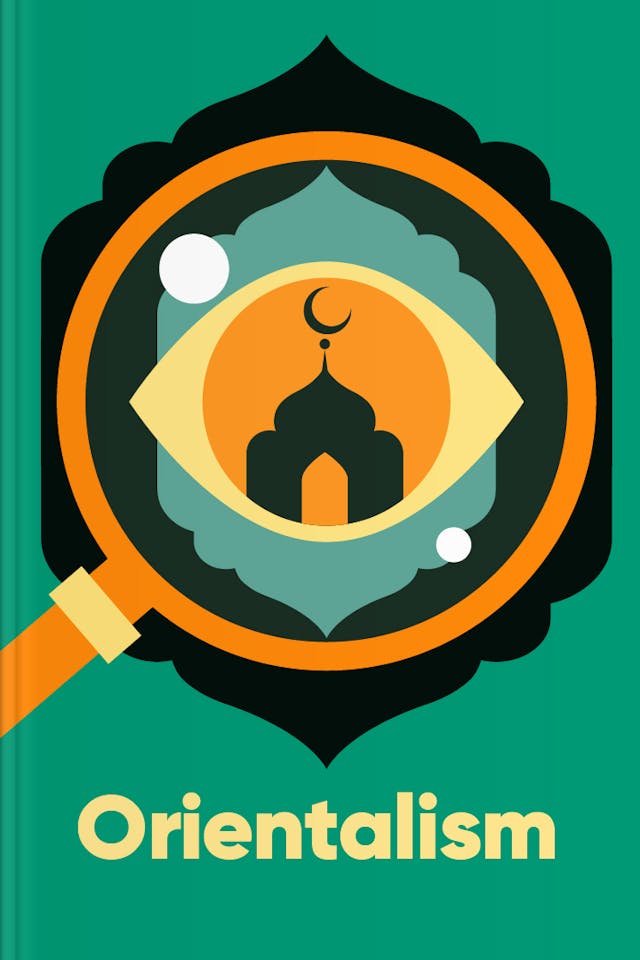You’ll learn
- Why Western views of the East might be biased
- How colonialism formed cultural perceptions
- About Napoleon's role in shaping Orientalism
- The role of fear in Western views of the East
Protect the world’s peace. Donate to support Ukraine

first KEY POINT
Just before the joint American-British invasion of Iraq, news outlets were on the hunt for Orientalists. These individuals have garnered academic knowledge, either by scholarship or through some brief stint in the Middle East (Orient). There were a handful of Orientals (Eastern natives) living in the U.S. at the time. However, most westerners are yet to recover from the post-September-Eleven shock. Hence, the discrimination that swayed in alongside Al-Qaeda’s adventures makes it unlikely for any Arabian to go on U.S. media. For rating’s sake, they’ll most likely be denied thoroughfare at the door of famous media houses.Nonetheless, the American people would love to understand the kind of people with whom they’re dealing. In the end, they settle for the Orientalists, with their skewed, though sincere, view of the Eastern cultures. The orientalist is the scholar, the Orient is the rich eastern precincts, while Orientals are the occupants.Europe had a jolly colonial ride on the Asian continent, and in the process, gave European intellectuals a skewed view of the originality of Oriental culture. These intellectuals seem to understand what Oriental culture should be instead of what it is. These pseudo-academic views are often faulty, irrespective of their knowledge and good intentions. In his scholarship, the Orientalist implies that the Orientals (Arabs and Asians) are incapable of self-definition. To this end, the subconscious imperialist drafts an Orientalist history and culture from a distorted and birds-eye point of view.
Unfortunately, cultural discrimination is not limited to the West alone. Even the natives of the Oriental Middle East are apprehensive of having any relation with subjects that bear the Americanism tag. Arabs are often blinded by the unchecked control the west has over their countries to appreciate American society for what it is.Conclusively, the two sides of the Orientalism meniscus happen to be faulty. Judging an entire community or nation based on the nefarious activities of some Islamic extremist, die-hard white supremacist, or racist intellectual is the wrong way to go. Instead, we all need to understand individual personalities and how they interact with their local society. By inference, we need to know how they adjust and overlap with entirely new civilizations and cultures, particularly in this era of globalization.There are several things that miss us due to seeing people and the world from a myopic perspective. This summary will help you open up your worldview and understand the major ideologies that shape the modern world.
second KEY POINT
A story was told of a colonialist who spent 25 years in Oriental Egypt, serving in various administrative capacities. The meticulous and unflinching poise of this colonialist at serving the British crown won him an illustrious reception in Britain after his retirement. The day of his official acknowledgment by the Queen arrived, and he was required to give a brief address. The entire narrative of the colonialist gave a warped and distorted caricature of the Egyptian culture. British decision-makers in the audience, many of them having no opportunity of an Egyptian pilgrimage, believed the tales of their sentry.At the peak of colonialism, only a few westerners had a firsthand experience of the East or a scholarly exposure to their culture. This category of people is called Orientalists. They are adept at drawing up an intellectual body, detailing what they call the Middle eastern or Muslim way of life. Such narratives make a breakneck effort, sometimes honest ones, to explain why Orientals behave the way they do. Orientalists are concerned that Orientals lack a mind of their own, and even if they did have one, they are incapable of exercising their cognitive powers.Such rationalizations are the mindset behind canonizing the history and culture of a people foreign to us without seeking the input of the people concerned. Maybe some of the agitative tendencies of such Orientals are correct. However, can we prove them to be true of every member of that society?

Continue reading with Headway app
Continue readingfirst KEY POINT
second KEY POINT
third KEY POINT
fourth KEY POINT
fifth KEY POINT
sixth KEY POINT